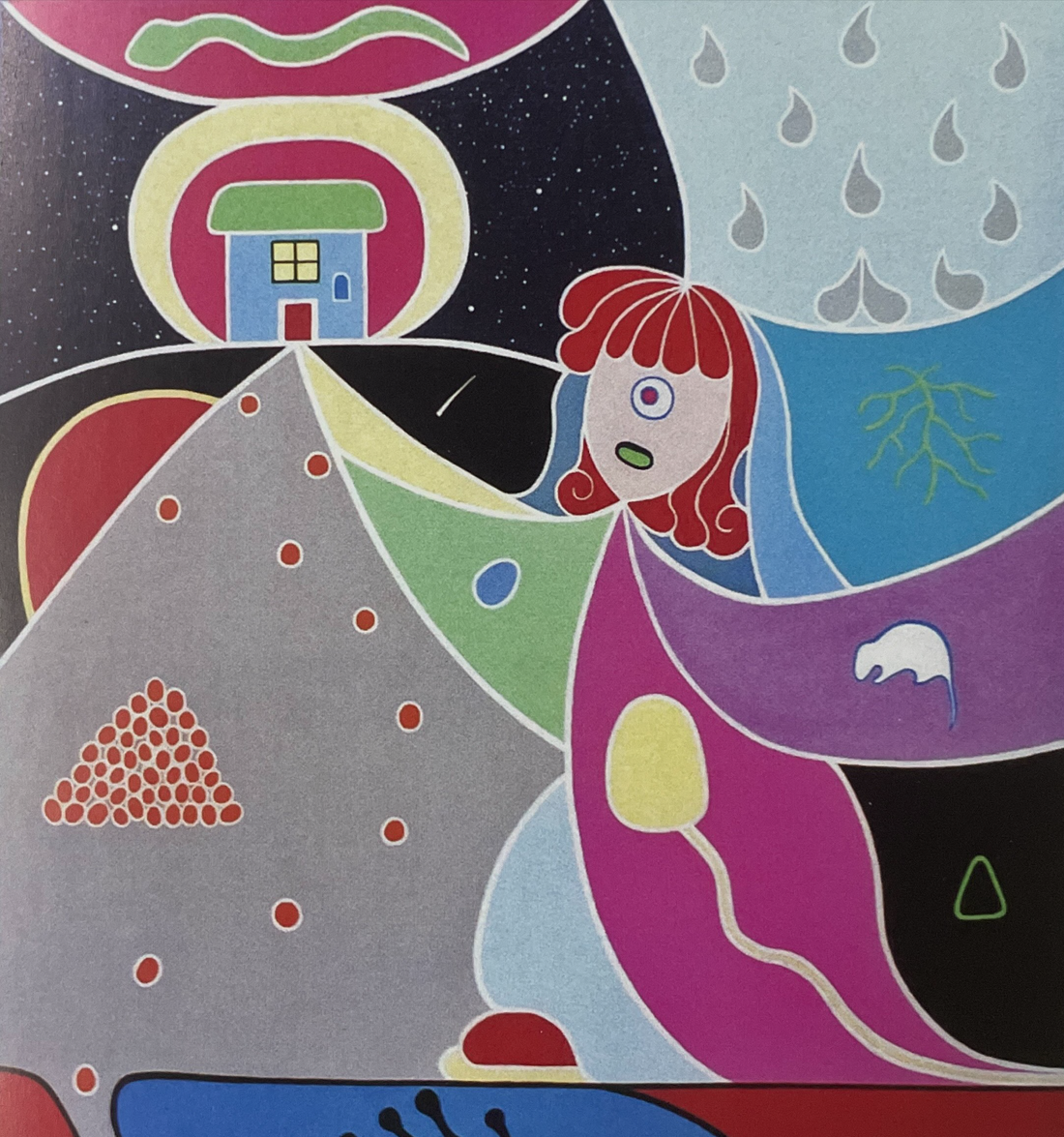Featured Painting Title: Girl - Woman Lights Her Way Home
By Michelle Hosking
"This painting is about the journey into madness (or illness) and somehow finding my way out back to myself or 'home'"
-
Mental Health First Aid
First aid is the help given to a person who is ill or injured before professional medical treatment can be obtained. The aims of any first aid are to:
1. Preserve life
2. Prevent further harm
3. Promote recovery
4. Provide comfort to the person who is ill or injured.
Mental health first aid is the help offered to a person developing a mental health problem or experiencing a mental health crisis. The first aid is given until appropriate professional help is received or until the crisis resolves.
The aims of mental health first aid are to:
1. Preserve life where a person may be a danger to themselves
2. Provide help to prevent the mental health problem from becoming more serious
3. Promote recovery of good mental health
4. Provide comfort to a person with a mental health problem.
Mental health first aid will typically be offered by someone who is not a mental health professional but rather by someone in the person's social network (such as family, friend or work colleague) or someone working in a human service occupation, e.g. teacher, police officer, employment agency worker.
ACTION I : Approach the person, assess and assist with any crisis
The initial task is to approach the person, look out for any crises and assist the person to deal with them. In a situation involving a person with a mental health problem, the possible crises are that:
• the person may harm themselves (e.g. by attempting suicide, by using substances to become intoxicated, or by engaging in non-suicidal self-injury);
• the person experiences extreme distress (e.g. such as a panic attack, a traumatic event or a severe psychotic state);
• the person's behaviour is very disturbing to others (e.g. if they become aggressive, or lose touch with reality).
If the first aider has no concerns that the person is in crisis, they can ask the person about how they are feeling and how long they have been feeling that way and move onto ACTION 2.
ACTION 2: Listen non-judgmentally
Listening to the person is a very important action. When listening, it is important to set aside any judgments made about the person or their situation, and avoid expressing those judgments. Most people who are experiencing distressing emotions and thoughts want to be listened to empathetically before being offered options and resources that may help them.
When listening non-judgmentally, the first aider adopts certain attitudes and uses verbal and non-verbal listening skills that:
• Allow the listener to really hear and understand what is being said to them, and
• Make it easier for the other person to feel they can talk freely about their problems without being judged.
It is important to listen non-judgmentally at all times when providing mental health first aid.
ACTION 3: Give support and information
Once a person with a mental health problem has felt listened to, it can be easier for the first aider to offer support and information. The support to offer at the time includes emotional support, such as empathising with how they feel and giving them the hope of recovery, and practical help with tasks that may seem overwhelming at the moment. Also, the first aider can ask the person if they would like some information about mental health problems.
ACTION 4: Encourage the person to get appropriate professional help
The first aider can also tell a person about any options available to them for help and support. A person with mental health problems will generally have a better recovery with appropriate professional help. However, they may not know about the various options that are available to them, such as medication, counselling or psychological therapy, support for family members, assistance with vocational and educational goals, and assistance with income and accommodation.
ACTION 5: Encourage other supports
Encourage the person to use self-help strategies and to seek the support of family, friends and others. Other people who have experienced mental health problems can also provide valuable help in the person's recovery.
It is important to care for yourself.
After providing mental health first aid to a person who is in distress, you may feel worn out, frustrated or even angry. You may also need to deal with the feelings and reactions you set aside during the encounter. It can be helpful to find someone to talk to about what has happened. If you do this, though, you need to remember to respect the person's right to privacy; if you talk to someone, don't share the name of the person you helped, or any personal details which might make them identifiable to the person you choose to share with.
-
When providing mental health first aid to a person not from your own cultural background, always be culturally competent and practice cultural safety.
Cultural competence
Being culturally competent when providing mental health first aid involves:
•Being aware that a person's culture will shape how they understand health and ill-health
• Learning about specific cultural beliefs that surround mental illness in the person's community
• Learning how mental illness is described in the person's community (knowing what words and ideas are used to talk about the symptoms or behaviours)
• Being aware of what concepts, behaviours or language are taboo (knowing what might cause shame).
Cultural safety
Practicing cultural safety means:
• Respecting the culture of the community by using the appropriate language and behaviour
• Never doing anything that causes the person to feel shame
• Supporting the person's right to make decisions about seeking culturally-based care.

